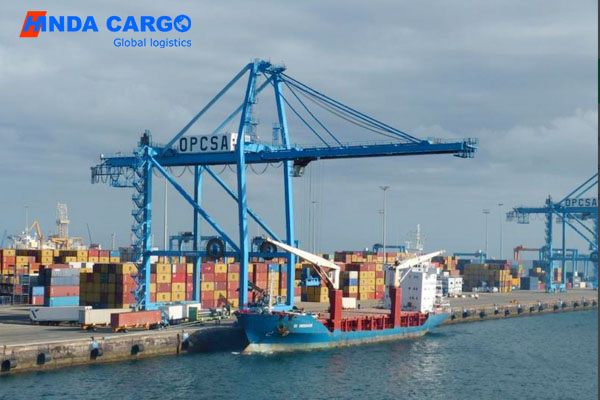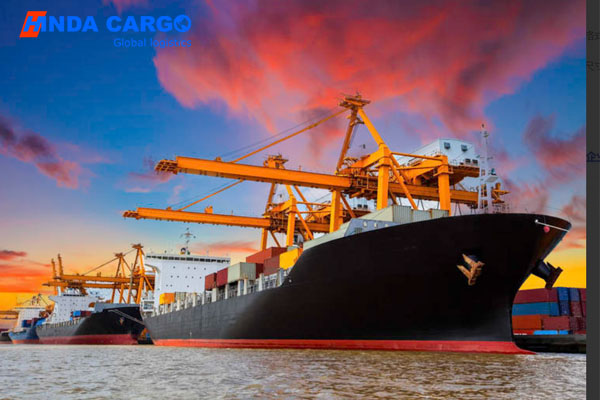
How to develop international freight forwarding business?
2024-08-10 04:04
Freight forwarding business is an important part of modern logistics and supply chain management. Agents help companies carry out trade activities smoothly by organizing the transportation of goods in international and domestic markets. Before starting a freight forwarding business, there are some basic steps that you need to know to ensure that the business is legal and effective.
6 Steps to Starting a Freight Forwarding Business
1. Know what type of entity you are
2. Determine your mode of transportation
3. Decide if you also want to become an operator
4. Registered freight forwarder license
5. Submit insurance policy
6. Obtain a Freight Broker Bond or Trust Fund Agreement

Below, we introduce these 6 steps in detail:
1. Know what type of entity you are: The first step in starting a freight forwarding business is to determine what type of entity you are. You can be a sole proprietor, a limited liability company, a partnership, or another type of business entity. Choosing the right entity type will affect your tax status, liability and how you operate.
2. Decide on your mode of transportation: Before starting a freight forwarding business, you need to decide which mode of transportation you will focus on. Freight forwarders can choose from sea, air, land or a combination of shipping methods. Determining the mode of transportation you will specialize in will help you build expertise and experience.
3. Decide if you also want to be an operator: Freight forwarders have the option of becoming an operator, meaning they will have their own transportation equipment, such as trucks, cargo ships, or aircraft. If you choose to become an operator, you will need additional investment and operating licenses.
4. Registered Freight Agent License: Once you have decided on your business structure and mode of transportation, you need to apply for a Freight Agent License. This typically involves submitting an application, paying fees and providing necessary documentation such as a business plan, financial statements and operating license.
5. Submit an insurance policy: Freight forwarding business needs to submit an insurance policy to ensure that potential risks that may arise during the transportation of goods are covered. This includes liability insurance and cargo insurance to protect your customers and your business.
6. Obtain a freight broker bond or trust fund agreement: Freight forwarders will also need to obtain a freight broker bond or trust fund agreement. These financial instruments ensure that your customers are protected during the transportation of goods and that your business complies with laws and regulations.

What expertise and skills are required to start a freight forwarding business?
1. Logistics knowledge: Freight forwarders need to understand the basics of logistics and supply chain management. This includes transportation modes, warehousing, inventory management and distribution strategies. Having this knowledge helps agents provide customers with efficient and economical transportation options.
2. Regulations and Compliance: Freight forwarders need to understand the laws and regulations related to transportation, including international trade regulations, customs regulations and safety standards. Ensuring compliance is key to avoiding legal disputes and keeping your business legal.
3. Communication and Negotiation Skills: Freight forwarders need to communicate and negotiate effectively with customers, suppliers and shipping companies. Excellent communication skills help build good client relationships, solve problems and reach mutually beneficial agreements.
4. Organization and Time Management: Freight forwarders need to handle multiple projects and tasks, so good organization and time management skills are required. Maintaining efficient workflows and accurate records is key to running a successful business.
5. Risk management: Freight forwarders need to understand the potential risks during cargo transportation and develop corresponding risk management plans. This includes purchasing appropriate insurance, monitoring the status of your shipment, and resolving issues promptly.

How to ensure the success and sustainability of your freight forwarding business?
1. Build strong customer relationships: A successful freight forwarding business relies on building long-term, mutually beneficial relationships with customers. By providing excellent service, timely communication, and personalized solutions, you can earn your customers' trust and loyalty.
2. Stay competitive: The freight forwarding industry is highly competitive. To stay competitive, you need to continually innovate, offer a unique value proposition, and adjust your business strategy as the market changes.
3. Invest in technology and innovation: The modern freight forwarding business relies on advanced technology and innovation. By investing in logistics management systems, tracking and monitoring tools, and other technology solutions, you can increase efficiency, reduce costs, and provide better customer service.
4. Establish partnerships: Establishing partnerships with other logistics companies, transportation companies and suppliers can help you expand your business scope, improve service quality, and reduce operating costs.
5. Continuous learning and development: The freight forwarding industry is constantly changing. Through continuous learning and development, you can keep your business current and respond to new challenges. This includes attending industry conferences, trainings and seminars, and staying current on the latest industry trends and technologies.
Summarize
Starting a freight forwarding business requires understanding many aspects, including business structure, transportation methods, regulatory compliance, and expertise. By staying on top of these key areas, you can ensure your business is legal, effective, and successful and sustainable in a competitive market.
Get the latest price? We'll respond as soon as possible(within 12 hours)
